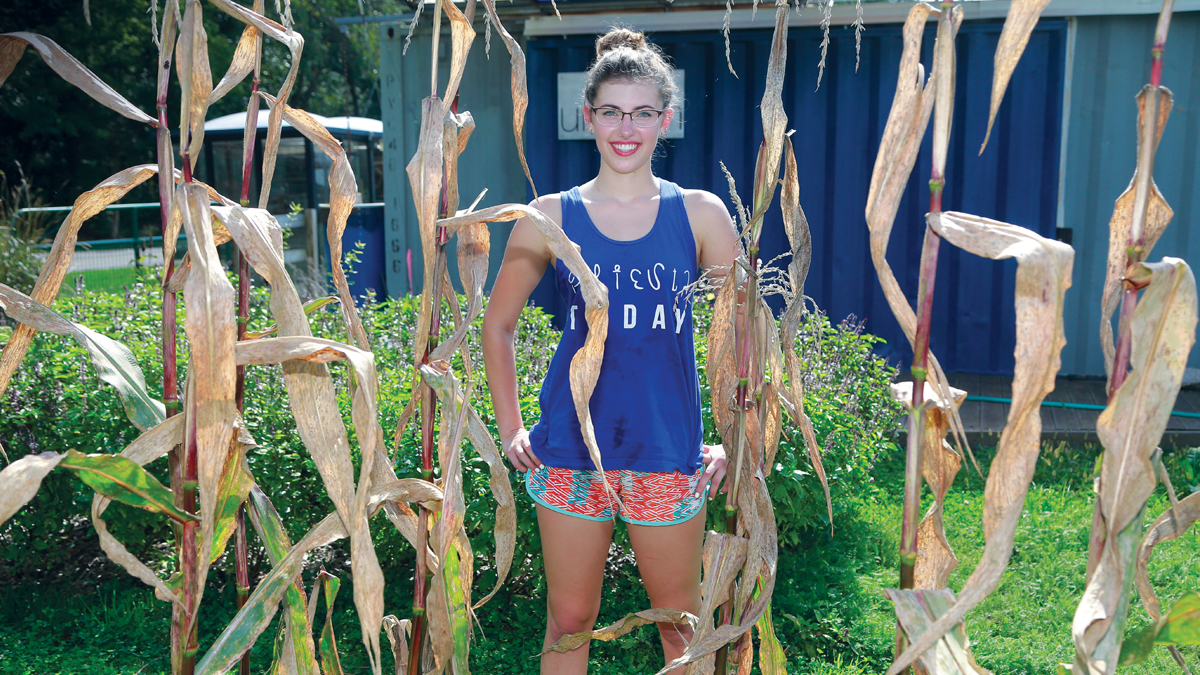Marissa Byers ’18, the first Butler student to officially major in Environmental Studies, figures she now has the best of all worlds when it comes to career options. The junior from Springfield, Illinois, could use what she’s learning to work in public health. Or maybe on public policy issues. Or perhaps working for a non-profit or doing something in urban ecology.
As someone with a broad range of interests who has considered majors in business, communication, and education, Environmental Studies plays to her strengths.
“My passion has always been the environment, and in Environmental Studies I get to combine a lot of my skills,” she said. “If I go into non-profit work, I’m going to be using those communication skills and those business skills in outreach with communities. So I’ll be using my strengths for a purpose I’m passionate about. Environmental Studies is a nice combination of that.”
Environmental Studies is a new major under the Science, Technology, and Environmental Studies (STES) umbrella. Biology Professor Carmen Salsbury, who directs the STES program, said student interest in a broad range of disciplines is driving the new major, which allows for a career in the science arena without doing the classic biology-chemistry-physics track.
“What’s great about STES is that these majors reflect how the world is,” Salsbury said. “These majors are very interdisciplinary and that’s how the world is as well. You have to know an awful lot about a lot of things. If we’re trying to train students who are going to contribute to society, we have to teach them to think broadly and critically and see how things interconnect.”
Environmental Studies majors focus on the relationship between environment and society and those environmental issues that deserve attention, like: How do we institute environmental change or awareness? Students take some prescribed science courses to establish a basic understanding of chemistry, ecology, and evolutionary biology, as well as other courses that focus on the environment. They also delve into the sociological aspects, such as humanity’s relationship with the environment and what that means for the future.
All Environmental Studies majors must complete a practicum experience—either taking the Environmental/Sustainability Practicum course or by completing an independent practicum/ internship experience in which they work with a community partner on an issue relevant to that partner. Byers, for example, is fulfilling her requirement by interning with the CUE Farm on campus. Some students might work with Keep Indianapolis Beautiful, the Indiana Department of Natural Resources, or even at the statehouse dealing with lobbying organizations on an issue like concentrated animal feeding operations or another factory farming-related cause.
“We really want the students to get out into the community and engage the community in those issues that are environment-related,” Salsbury said. “I think students are recognizing that science and society is critically important to implement policy and change behaviors with regard to the environment, medical practices, and immunizing children, to name just a few areas. All of those things have major sociological, ethical, cultural, political, and economic components to them.”
Byers said she figures she may end up in a job that doesn’t exist yet. That might mean something in the area of working with kids, since there’s a trend in schools to incorporate nature into the curriculum. That has a lot of benefits for child development education, she said, and also prepares the next generation to be more environmentally conscious.
“I want to work in urban environments to change people’s perceptions of nature as something that’s out there that we’re not connected to,” Byers said. “I want to bring it into urban environments to help people understand what their daily actions do to the overall environment.”


